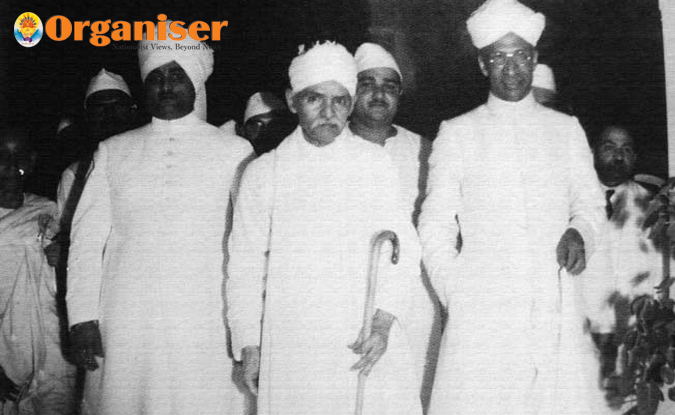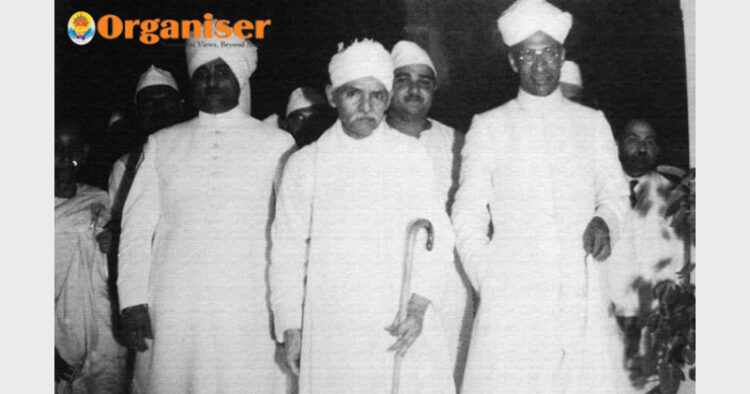We have done a great disservice to S Radhakrishnan by freezing his legacy to Teachers’ Day alone. A real tribute would require us to revisit his recommendations on indigenising education
The Report of the University Education Commission, 1949, popularly known as Radhakrishnan Committee report, named after its Chairman, Dr Sarvepalli Radhakrishnan must be highlighted on Teachers’ Day. As the chief author of the report, Radhakrishnan outrightly remarked that, “If India is to confront the confusion of our time; she must turn for guidance, not to those who are lost in the mere exigencies of the passing hour, but to her men of letters, and men of science, to her poets and artists, to her discoverers and inventors. These intellectual pioneers of civilisation are to be found and trained in the universities, which are the sanctuaries of the inner life of the nation.”

Dr S Radhakrishnan with Mahamana Madan Mohan Malviya, when Radhakrishnan served as Vice-Chancellor of BHU
Yes, the emphasis of the University education was on producing men of letters, men of science, poets and artists, and inventors and innovators. However, some of our prominent universities commenced producing disruptors of the civilisational continuities and not its pioneers. Why premiere universities such as Jawaharlal Nehru University (JNU) have students and faculties who propagate the undoing of the inner life of the nation? Why there are so many issues with the cultural and spiritual attributes of the national-self?
Endevour for Human Betterment
Radhakrishnan remarked that “A life of strenuous endeavour for human betterment is not possible if we are not persuaded that life has a meaning. Many of our popular writers today seem to be possessed by the one desire to escape from the world of meaning and teach us the essential purposelessness of life. They make us believe, with a good deal of cleverness and sophistry, that life is infinitely complicated and inexplicable.”
“Education, according to the Indian tradition, is not merely a means to earning a living; nor is it only a nursery of thought or a school for citizenship.”
He continued that, “Many of our students are taught to assume that free-will and personal responsibility are illusions, that human beings are conditioned almost wholly by their physical make-up and the society in which they live, and that the only sense that the religious statements make is emotional and subjective. This is a generation which knows how to doubt but not how to admire, much less to believe. This aimlessness, this indifference to basic issues, is to no small extent, responsible for the decline of standards, for the fading of ideals, for the defeat of human endeavour.”
Therefore, Radhakrishnan was continuously giving a clarion call for putting meaning and worth into education. He did so, throughout his life! His life as a Dharmik scholar and a Dharmik practitioner are before us, which unfortunately today has only been reduced to Teachers’ Day.
He remarked that “Education, according to the Indian tradition, is not merely a means to earning a living; nor is it only a nursery of thought or a school for citizenship. It is an initiation into the life of the spirit, a training of human souls in the pursuit of truth and the practice of virtue. It is a second birth, divitiyam janma.”
If there is any befitting tribute on Radhakrishnan’s birth anniversary, it must ask whether we have fulfilled the promise of indigenising our education, and thus, decolonising our minds! Do we have an education system which is a nursery of thought or a school of citizenship?














Comments